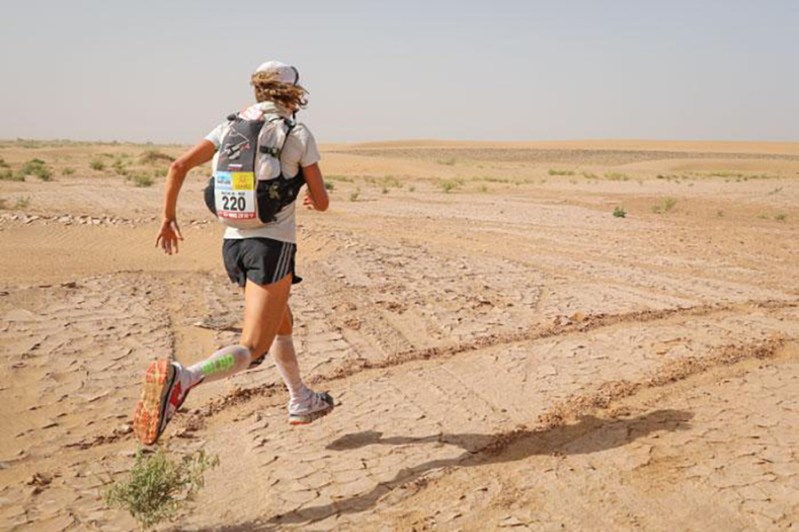Since the Clean Air Act of 1970, air quality has greatly improved in the United States, and people are increasingly concerned about the environment and the air we breathe. Sensitive ecosystems are damaged by air pollution, and related illnesses take a toll on the healthcare system. If air quality affects human health, does it also affect marathon finish time for runners?
Runners prepare for marathons in different ways, such as eating a nutrient-dense diet and practicing tempo runs and interval runs. Certain factors impact how long it takes for you to cross that finish line, but what about the air quality? Recently, researchers conducted a study to find out more. Let’s zoom in on the research and results.
The study

In a study published in the Journal of Sports Medicine, researchers wanted to explore the effect that air quality has on performance during endurance events like marathons. Researchers analyzed data from public marathons in the United States conducted between 2003 and 2019. The large study involved over 1.5 million male runners and over 1 million female runners.
Researchers compared finishing times with air quality data captured on the event days, including particle pollution in the air at different points of the marathon. With a marathon being 26.2 miles, the air could be cleaner at some miles compared to others.
Fine particle pollution

Researchers used an advanced spatial-temporal model of particulate matter to analyze pollution at every mile along the marathon route. They zoned in on levels of fine particle pollution, which refers to airborne particles smaller than the width of a grain of fine beach sand or the width of a human hair, according to the Environmental Protection Agency.
The EPA states that particles larger than 10 micrometers don’t usually reach your lungs but can irritate your eyes, throat, and nose. Fine particles are less than 2.5 micrometers in diameter and are typically produced by burning coal, oil, wood, or diesel, agricultural burning, forest fires, and other causes. The researchers point to previous studies indicating how particle air pollution is linked to an increased risk of heart disease, lung cancer, and breathing problems.
The results

Marathon runners are typically healthy overall with enhanced cardiorespiratory fitness. The researchers concluded that high levels of air pollution are associated with slower average marathon finish times, so it turns out that poor air quality could really be slowing you down and hindering performance. The researchers theorized that this could be due to increases in blood pressure, impaired lung function, constricted blood vessels, and perhaps short-term changes in brain function.
Slower finishing times

The study revealed that for every increase of one microgram per cubic meter or µg/m³ of fine particulate matter in the air, the runners’ average marathon finish times steadily decreased, with men crossing the finish line 32 seconds slower on average and women finishing 25 seconds slower.
The effects seemed to be more noticeable in runners that were faster than average. Air quality played a role in marathon finishing times for everyone, even at levels below the current health-based standards.
Improving the air we breathe

These findings only further our awareness and understanding of air pollution and our need to improve the air we breathe. Experts state that it’s best to exercise outdoors when the Air Quality Index or AQI is between 0 and 50. Generally speaking, moderate AQI levels between 51 and 100 are acceptable but might not be ideal for those with certain chronic health conditions.




